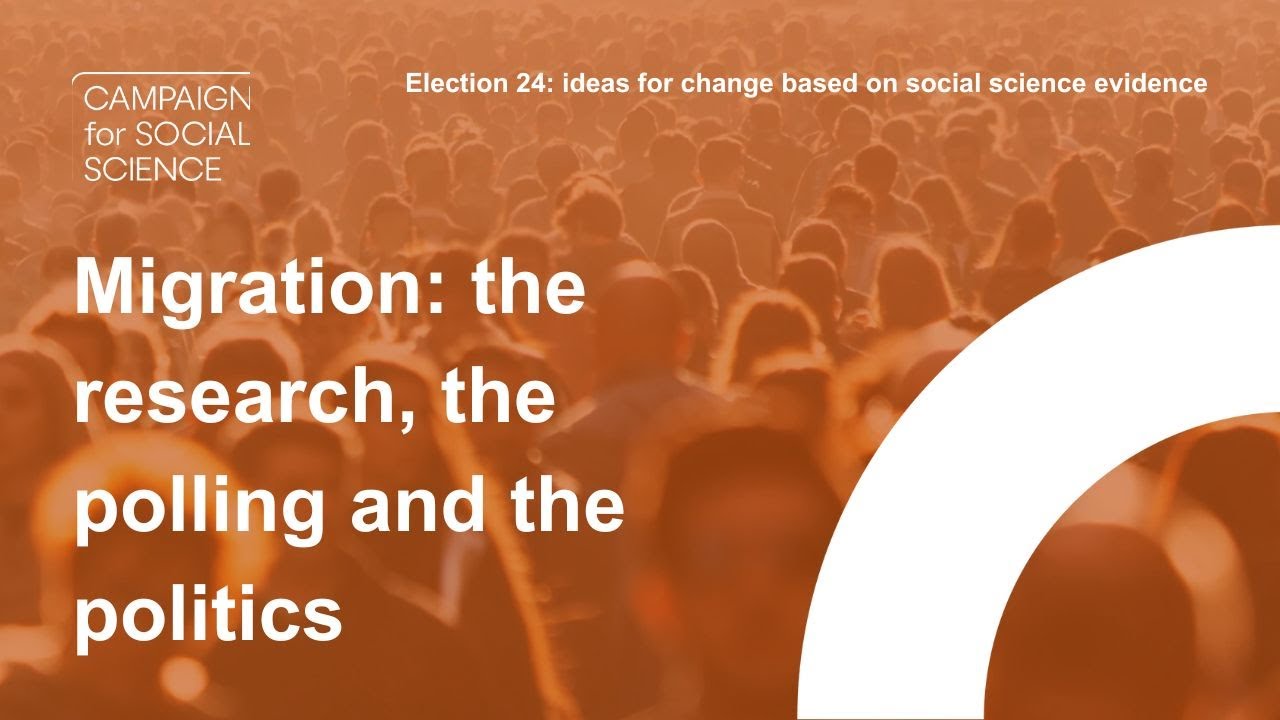The topic of migration continues to be a salient one for voters and is likely to feature strongly in the next UK General Election. In our second event as part of the Campaign for Social Science’s ongoing project, Election 24: ideas for change based on social science evidence, our panel of experts explored the issue of migration within a UK context and what this could mean for future policy directions.
In the online webinar, chaired by Dr Heather Rolfe of British Future, our panellists, Professor Heaven Crawley, United Nations University Centre for Policy Research (UNU-CPR), Professor Paul Whiteley, University of Essex, and Lord David Blunkett, House of Lords, each gave a short presentation addressing, the research, the polling and the politics of migration.
First, Heaven outlined the key themes and findings from academic research on migration within a UK context, and what policymakers should seek to learn from it. She highlighted how what people think about migration is often shaped by other issues and how the relationship between evidence and policymaking is often highly complex and rarely clear, before focusing on why people come to the UK to seek asylum. Heaven drew on her research, commissioned by the Home Office, to explain the factors which shape asylum decision making and outlined how the asylum and refugee issue has moved up the political agenda.
Heaven said, “Migration has effectively become what you might call a ‘touchstone’ issue for a whole range of other issues impacting society and the daily lives of its citizens, everything from access to housing and healthcare to the quality and security of employment and to peoples’ day to day interactions within their communities.”
Following Heaven’s presentation, Paul provided some insights on public opinion and voting behaviour relating to the issue of migration. First, he outlined how net immigration has changed over time before exploring the political effects of immigration on voting behaviour. From his research, Paul delved into the issues that have been preoccupying voters since the 2019 General Election and showed how immigration has risen up the public’s agenda and is now perceived to be the third most important issue facing the country.
As Paul explained, “A law of politics is that parties are not going to concentrate on issues where there’s only minor interest in it. They’re going to focus heavily on the big issues which people perceive as being important.”
Finally, Lord Blunkett reflected on the politics of migration, and the extent to which policy decisions are, or should be, swayed by research evidence and public views. Using examples from his parliamentary career, he emphasised the complex series of factors which have shaped immigration to the UK and impacted policymaking.
Lord Blunkett said, “I think we need to see this in terms of the politics of reaction to circumstances with and outside the country which you, in a democracy, have to respond to, and the question is, do you do so wisely?”
Heather rounded off the discussion with a note of positivity about changing public attitudes towards migration. She said, “Attitudes have softened over time, so particularly since 2015, I think the public is a lot more positive about immigration. And I think there a future government does have permission, pragmatic permission, from the public to pursue more positive immigration policies and ones that can benefit employers, the economy and society.”
Watch the recording below to hear more from our speakers.

